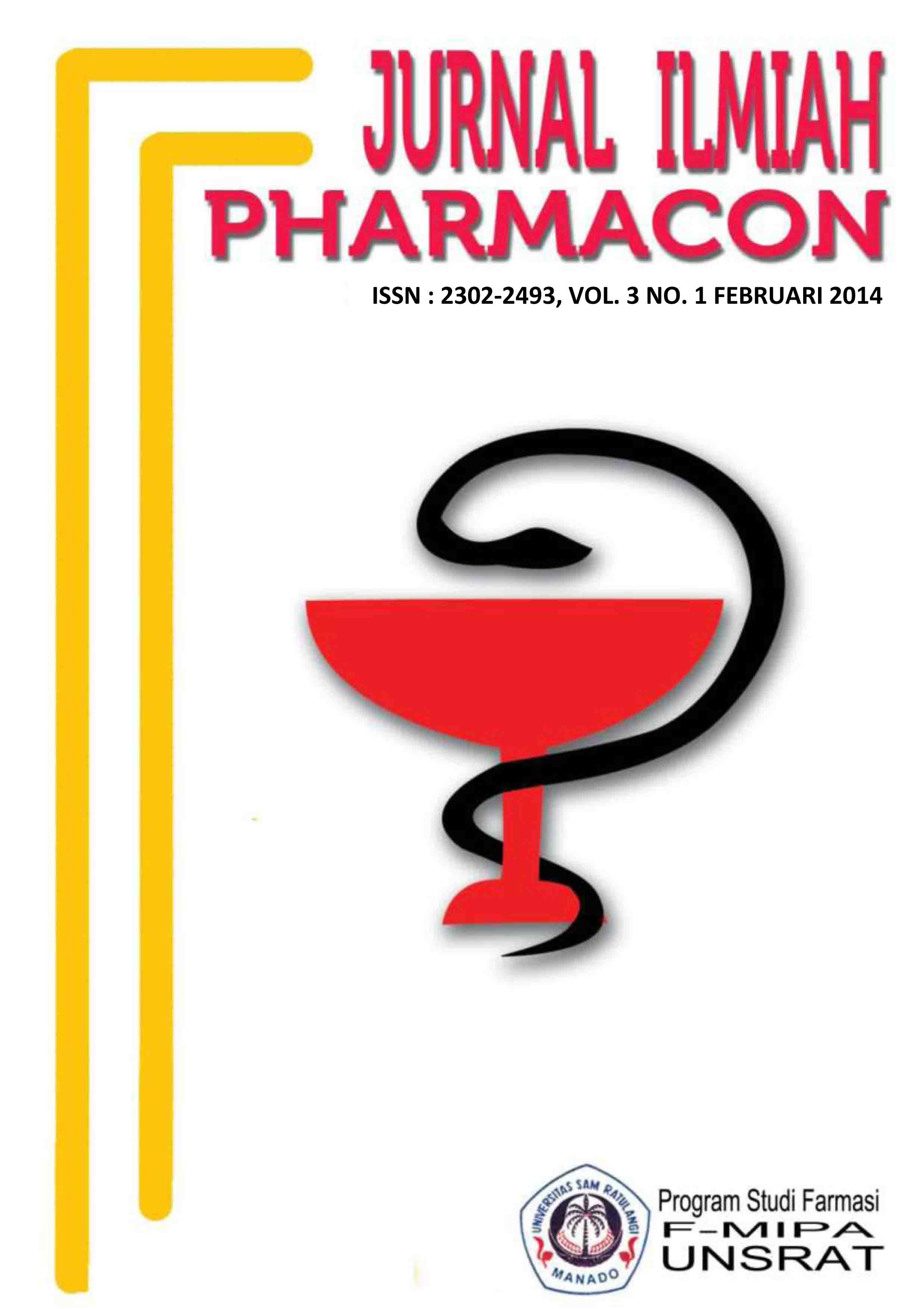UJI EFEKTIFITAS SALEP EKSTRAK ETANOL DAUN BAKAU HITAM (Rhizophora mucronata Lamk) DAN PENGUJIAN TERHADAP PROSES PENYEMBUHAN LUKA PUNGGUNG KELINCI YANG DIINFEKSI BAKTERI Staphylococcus aureus
DOI:
https://doi.org/10.35799/pha.3.2014.3891Abstract
The objectives of this research are to find out the quality of 4%, 6%, 8%, and 10% ointments from black mangrove extract, and the healing effect of infected wound on rabbit back skin. Extraction of black mangrove was done by maceration. Ointments were tested by organoleptics, homogeneityt and pH. Test of healing effectivity was done using 5 categories, that is chloramphenicol ointments (positive control), basic ointments (negative control), black mangrove ethanol ointments extract 4%, black mangrove ethanol ointments extract 6%, black mangrove ethanol ointments extract 8%, black mangrove ethanol ointments extract 10% against infected wound of experiment rabbits, which done in 7 days. Data was analyzed using One Way ANOVA (Analysis Of Variance) and continued with LSD (Least Significant Different). The result shows that the basic ointments and the black mangrove ethanol ointments extract 4%, 6%, 8%, 10% meet the quality standard by homogeneity test, organoleptic test, pH test, but did not meet saturate requirements of dispersive power test. Black mangrove ethanol extract ointments 10% possess high activity of wound healing, followed with 8%, 6%, and 4% black mangrove ethanol ointments extract.
Â
Key words : Rhizophora mucranata Lamk, ointments, infected wound, rabbitDownloads
How to Cite
Issue
Section
License
Authors who publish with this journal agree to the following terms:
- Authors retain copyright and grant the journal right of first publication with the work simultaneously licensed under a Creative Commons Attribution-NonCommercial 4.0 International License that allows others to share the work with an acknowledgement of the work's authorship and initial publication in this journal.
- Authors are permitted and encouraged to post their work online (e.g., in institutional repositories or on their website) prior to and during the submission process, as it can lead to productive exchanges, as well as earlier and greater citation of published work (See The Effect of Open Access)










